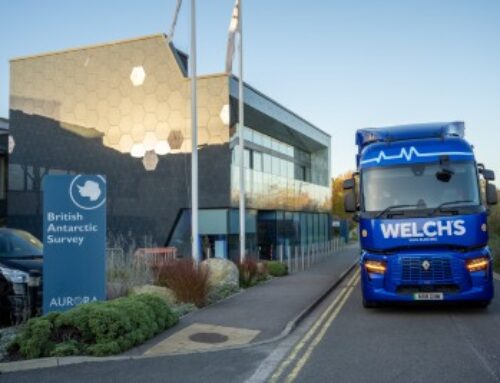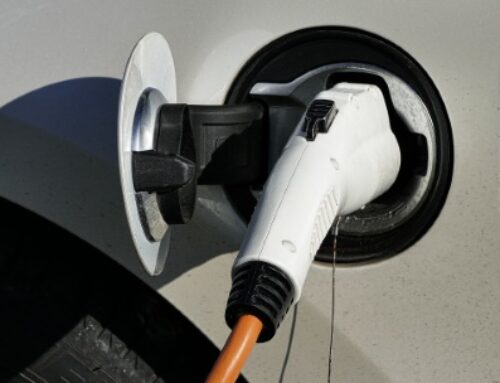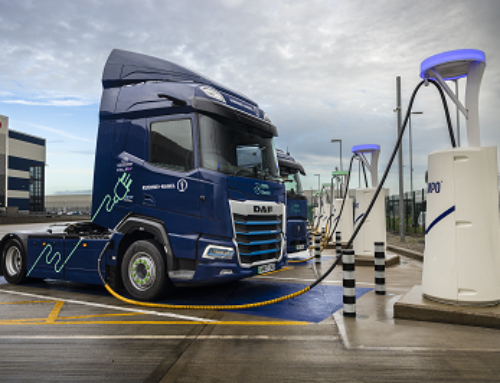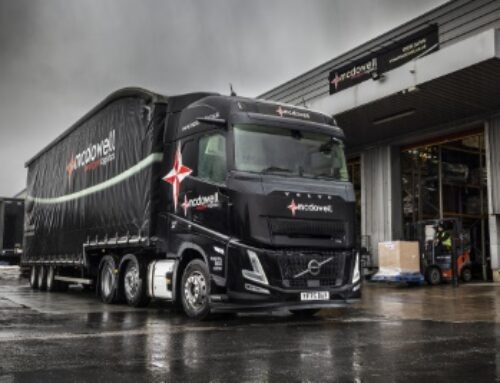HVS hydrogen truck in spotlight at CV Show
 Backing from owners of the Asda supermarket chain and 6,000 retail filling stations will be instrumental in helping Hydrogen Vehicle Systems (HVS) reach critical mass with its all-new hydrogen fuel-cell tractor unit.
Backing from owners of the Asda supermarket chain and 6,000 retail filling stations will be instrumental in helping Hydrogen Vehicle Systems (HVS) reach critical mass with its all-new hydrogen fuel-cell tractor unit.
The UK-built vehicle made its public debut at the Commercial Vehicle Show in April, after attracting government funding earlier in the year.
The firm has the backing of EG Group, which is owned by Blackburn brothers Zuber and Mohsin Issa. EG Group started with a single filling station in Bury, Manchester in 2001. The group was able to expand rapidly as the oil majors divested from forecourt retailing, and boosted turnover by increasing the retail offering in its forecourts’ shops. The Issa brothers acquired Asda from US giant Walmart in 2021 before the supermarket chain took over the forecourt business of Co-Op Retail last year.
Backing from EG Group gives the start-up crucial advantages over rivals in terms of critical mass. Trucks can be placed in the Asda own-account fleet to gain real-world operational experience in-house, and hydrogen made available at key locations in the group’s network of forecourts and other properties, reminiscent of how Tesla grabbed an early lead in the electric car market by not just building the cars but a charging network for them as well.
HVS also plans to trial autonomous driving technology with the Asda fleet on a hub-to-hub basis, but CEO Jawad Khursheed emphasises that the primary goal is to get hydrogen-powered trucks up and running on the UK’s roads with drivers at the wheel.
The truck uses integrated proprietary technology, including a 450 kW (600 hp-equivalent) maximum output e-axle rather than a conventional driveline.
Compressed hydrogen gas is held in multiple on-board tanks at either 700 or 350 psi, depending upon application, giving a claimed range of up to 600 km and refuelling times close to those of a diesel truck. Twin mid-mounted fuel cells convert the hydrogen to electricity, and a high-power energy storage system acts as a buffer between the fuel cells and the e-axle.
Effectively, this allows the fuel cells to run at a constant and efficient output irrespective of the demands made by the e-axle.
Mr Khursheed said it was too early to name the partners providing the proprietary technology.
There is a high emphasis on driver comfort and visibility within the HVS truck’s sleeper cab, which appears to take advantage of recent legislative dimensional changes to provide an aerodynamic nose.
A future UK production site has not yet been identified, and Mr Khursheed said that when it came to choosing a site, much depended on the availability of local and national government funding.













